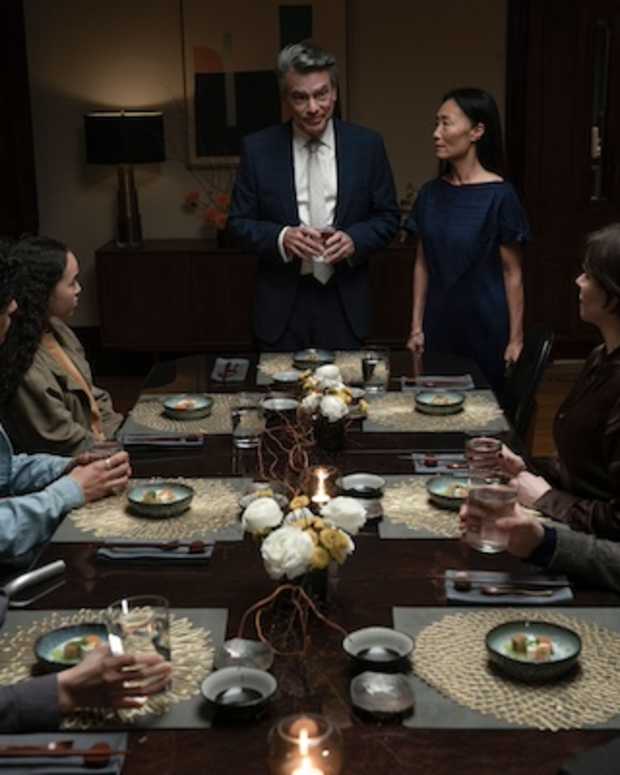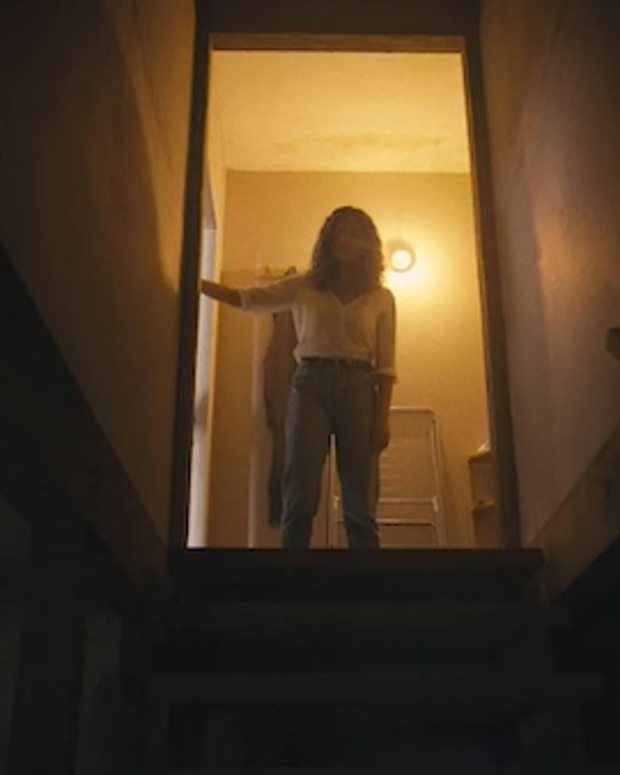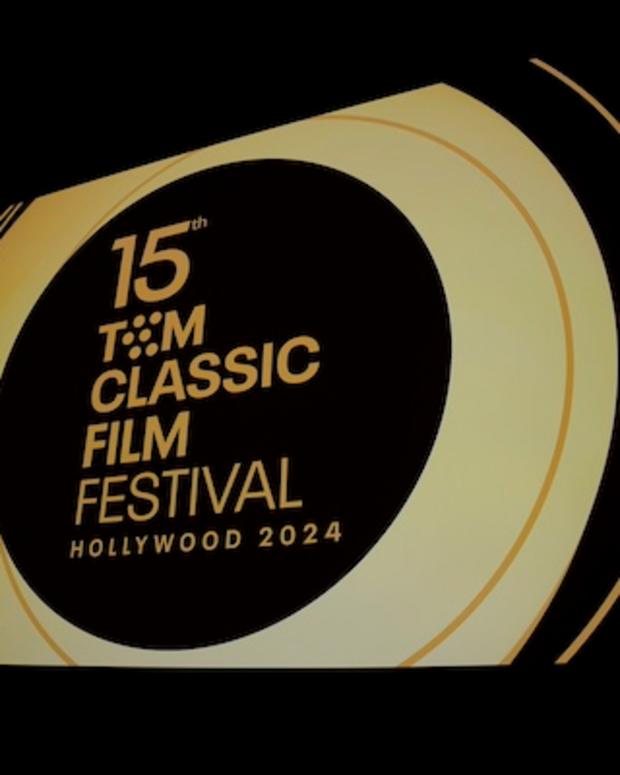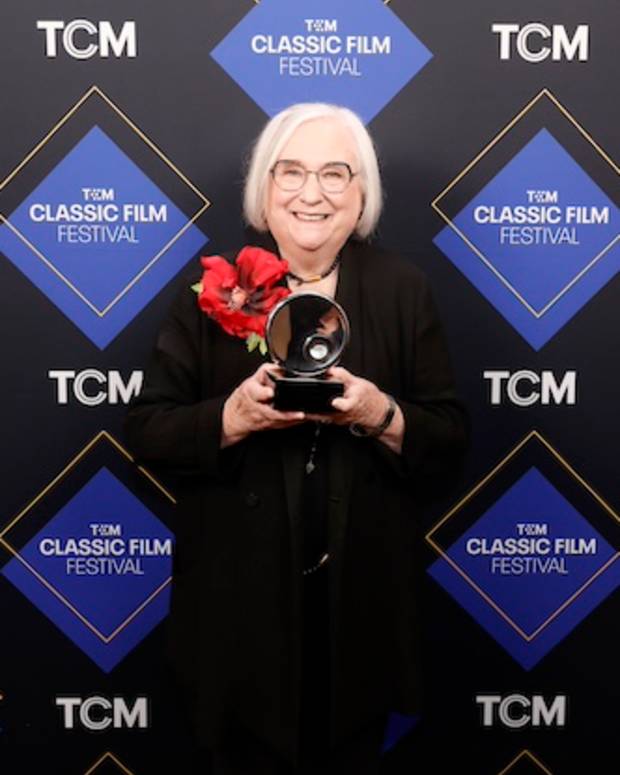INTERVIEW: Writer-Actor India Ennenga on Working with Hollywood Legends on "The Irishmen" and the Values of a Writing Background
Acting since the age of nine, screenwriter-actress India Ennenga says her experience was never that odd portrait that’s often associated with “child actor.” In her experience, it turned into a life-long study of human nature, both in writing and acting. She’s also inherited a few more parents.
“One of the strange things is that you end up with all these fictional mothers and fathers, and relive certain years of your life. I’ve been sixteen three or four times now,” she says.
Growing up, says Ennenga, a New York native born to a filmmaker mother, Laurie Weltz, she watched “a ton of films to stave off boredom, everything I could,” she says. “And if something new wasn’t an option, I would watch and re-watch my favorites until I had them memorized.”
Ennenga, who recently turned 25, just landed one of her most exciting roles playing a daughter of Frank Sheeran (Robert De Niro) in Martin Scorsese’s September release of The Irishman starring Robert De Niro, Al Pacino, and Anna Paquin.
Ennenga spoke to Script magazine from London, where she is currently completing a course at the London Academy of Music and Dramatic Arts (LAMDA).

India Ennenga Attends “The Irishman” International Premiere during the 63rd BFI London Film Festival, London
Tell me more about your first time acting and more about your writing.
All my energy was really placed into this world of watching and imitating. And, when I turned this attention outward, it was easier to see new possibilities in mundane things around me. Instead of watching a crowd of people walk by, I started to look at individuals, noting their habits and gestures, picturing what their lives were like, what they would make for dinner, why they smiled or were rude. I began to write just as a way to follow this further, to clearly think through these other possible lives.
You didn’t study acting in college but studied Comparative Literature at Brown University instead, and graduated cum laude. Did you study acting elsewhere or are you self-taught?
I’ve never studied acting before. I’ve always just gathered as much as I could from watching other actors on set and reading about various techniques. But I’ve always wanted to have a more comprehensive approach and understand acting as a technical craft more clearly, which is why I’m now finally training at LAMDA.
Why study, and at an academically challenging university at that? And why Comparative Literature?
School was always a priority for me and I knew that I wanted to go to university regardless of my acting career. I hope I will always have ways to keep learning, exploring, finding new interests, in many ways, acting and writing are the means by which to do that. They are both art forms that allow you to stay unspecialized and follow curiosity.
When I started university, I had way too many interests: ancient religion, history, philosophy, media theory, etc. But I quickly found that Comp Lit allowed room for all of this and it felt like such a natural choice. The program at Brown was amazing in this sense: it was comparative across languages and cultures, but also different strands of philosophy and media.
In terms of acting, I was very lucky to go to schools that allowed me to take time to pursue it, but of course finding the balance was always challenging. When I filmed The Returned in Vancouver, I was also doing a full course load at Brown in Providence and flying back and forth to classes as often as possible. More than anything, though, it made me so grateful for all of the people in my life who supported me—my friends, but also my wonderful teachers.
[Script Extra: What Can Writers Learn from Actor Interviews?]
What are some challenges in the film industry for a young female actor and writer? How hard is it being both, if at all?
Women, as we know, have been taken advantage of in the film industry, just as in all others. But it is an industry that will come to be dominated by women. I am sure of it. Women are, frankly, better negotiators and in many ways better risk takers, our culture ensures that they are more likely to have experienced failure in the past and to understand resilience and perseverance.
Beyond that, I think young actors and filmmakers need to use the engine of Hollywood to different ends, to manipulate it towards a better purpose. We should ask what role it plays in our massive economy of vanity. We need to find a way for humility to supplant vanity.
What aspects of acting and/or screenwriting appeals to you?
At first it was very much about getting to live these other possible lives. And it is still, in part, this; I am interested in characters and stories that force me outside of myself. But I am confused when people speak of acting as a type of self- expression—it is a negotiation. Actors negotiate with other actors—and with directors, cinematographers, make-up artists et al.—to produce a collective sentiment. But the actor also negotiates with the role—between their own agency and empathy for the character. For this reason, I also enjoy the repetition—in what other setting do you get the opportunity to repeat something, to fine-tune a gesture or a phrase?
That’s a really interesting way to look at acting. Does the same apply for screenwriting or is writing completely self-expression?
Yes, absolutely—the same applies for writing. I think it’s all repetition and negotiation. Though with writing the negotiation is more internal—between what needs to be said and how it can be said.
What are some works you’re most proud of and why?
I’m very proud of Treme. In many ways, it was a document of life in New Orleans during an incredibly difficult moment in its history. It was a love letter to the city, but also an attempt to record the abuse of power, the inequality, the pitfalls of daily life after Katrina, as well as how communities came together to help one another. I think David Simon will be remembered as one of America’s great documentarians—of an age in which the nature of power in this country shifted in ways that are still hard to perceive, but, in hindsight, will be so clear in his work.
What was your role in Treme and how did you get involved?
I played Sophia Burnett, the daughter of a lawyer (Melissa Leo) and a professor (John Goodman). Goodman’s character commits suicide at the end of the first season, so in many ways my role was about how teenagers work through trauma, whether a historical trauma like Katrina or a personal one like a father’s death.
What kinds of stories for film appeal to you and why? How do you approach acting?
I like works that say something about the world as a whole and that offer more than entertainment. You should never have to ask, “why do we need to make this film?” even if the answer has to do with a small, simple detail in the story. Other than that, I don’t think it’s healthy to form attachments to ‘types’ of films. When we come to like a genre, which we inevitably do, we should be suspicious of either ourselves or it.
What do you mean? In other words, why is forming attachments to ‘types’ of films unhealthy? Is it because it limits your interests?
Yes, I think it limits your interests. But it also reduces films, very often, to their plots—by thinking in terms of genres, we allow ourselves to simply repeat plots that feel familiar or comfortable to us instead of challenging ourselves to build worlds. I think that we currently, as a culture, have a tendency to produce safe films—that either rely on total realism or well-worn genre devices—which really narrows the possibility of filmmaking as an artistic medium. I think that’s what Scorsese has been getting at when talking about superhero films.
How do you approach acting?
I approach acting in a similar way—I try never to think of characters as types. People are made up of their past experiences and their reactions, whether psychological, physical, or emotional. So, to build a character means to create memories that inform their daily life and to carefully practice these reactions. That’s the background work. Once you are on set, the element of negotiation takes over and that’s when a character actually comes alive, in the midst of negotiating. When people talk about actors “being present,” this is what I think they mean. You could have fifty actors prepare the same memories and reactions until they thought they were all perfectly synched, but it’s the human element of negotiating that creates surprises and that would differentiate each of those actors. This is one reason why I find the tendency of casting directors to decide based primarily on physical looks so strange—physically transforming someone is so easy these days and that should not be the criteria for casting, the actor’s ability to react and negotiate should be.
I’ve never heard of negotiating in acting before but I want to learn more. Is another word for negotiation balance and does it imply collaboration among actors?
Both are definitely part of what I’m talking about—although ‘negotiating’ is just the way I think about acting, it’s not based on a specific technique. Perhaps another way to explain it would be the idea of working as an ensemble, but one that extends beyond a group of actors to include the writer and crew also. So yes, collaboration among actors is key. In order to react, to negotiate, you need to always be open to the other actors. You can only negotiate if you are always receptive and ready to collaborate.
2018 was a busy year for you. What catapulted you into all those roles?
2018 was a fun year for me. Although most of the parts I had were small supporting roles, the characters and projects were so varied. I got a chance to try many different approaches. The past few years have been a transition for me away from younger roles. I think 2018 was the year where that change really began to make sense from a casting perspective. It feels almost as if I am starting out fresh, which is very exciting.
How did you get involved in your recent film, The Irishman?
I auditioned in New York for The Irishman—just by doing an ad-lib in the room. I think the idea of being in a Scorsese film felt like such an impossible fantasy that I wasn’t even nervous. Maybe that helped.
Tell me a bit about your character in The Irishman.
I have a small role in The Irishman, playing Dolores Sheeran in the middle of the film, during the 60’s and 70’s. Dolores is the second youngest daughter of Frank Sheeran (De Niro) and was one of the few people in his family that remained close to him throughout his life.
Do you have a lot of scenes with De Niro and if so, what were they like?
All of my scenes were with De Niro and they were so fun to shoot. He’s someone I really admire and watching him work was wonderful. He has a really warm energy, but is also quite quiet and unassuming. As soon as he’s on set, all of his focus is on the scene. It’s hard to explain, but I got the sense that, with each take, he let the possibility of a different version present itself. I think he could perform the same scene over and over again all day and each take would be slightly different.
What did you like/love about the script and character?
The script is fantastic, a kind of explosion of the mafia story that Scorsese himself created, and the chance to do a period piece is always fun, but, I mean, Scorsese. What more can I say? It was such an incredible experience to be on that set.
What was it like to work with such legendary actors like Al Pacino?
Watching the whole cast—Pacino, De Niro, Pesci, etc.—work was like having a master class in acting. They approached each take, even during the smallest scenes, with such attention and focus. There was one scene in particular when Pacino had to give a speech to a huge room and, because of the logistics, it took almost a week to shoot. But every single time, he would start by telling jokes and stories to the crowd. He was warming himself up and focusing on the moment, but he was also making sure that all of the extras in the room were in the right mood and had something to play off. It’s that kind of generosity and thoughtfulness that makes an actor truly great.
What surprised you about this acting experience for The Irishman?
I had a very small part in the film, so I was only expecting to work for a week or so, but luckily the large budget meant I was on set for a month and really got to see the process. Having only done low-budget films before, I was of course surprised by the scale of it. The idea that a scene might take more than a few hours, let alone a whole week, was completely foreign to me. More than that, though, nothing could have prepared me for how wonderful Scorsese is. Of course, I expected him to be brilliant, but he was more than that. He was kind and invested, he knew the names of every member of the cast and crew and was involved in every single decision on set, down to the smallest details. Working on The Irishman really felt like working on Scorsese’s team. Nothing could beat it.
What have you written?
I co-wrote About Scout and since then have written a couple other screenplays that are still sitting in my drawer—one about a woman, Charlotte, accused of witchcraft during the English Civil Wars and another about friends living on an island after an environmental catastrophe. Mostly I write prose though—essays or short stories—and I’m currently working on a book.
What’s your book going to be about?
It’s about the disjunction between rural and urban areas in the US, through the lens of a slightly altered reality. I think the best way to explain it is rural science fiction. It follows a group of brothers and how their relationships change when the eldest moves to a big city. Each chapter shifts perspective and time is quite flexible. There’s sibling rivalry, a failing news outlet, wild fires, a lost brother, subway romance, eccentric neighbors—it covers a lot of ground.
How do you approach writing?
In order to write, I’m the kind of person that needs to do a ton of research. I spend what is probably way too much time thinking about details, reading about the time period, and watching or reading things of a similar mood. Then it all boils down to an image. Some image or a few sentences that I need to get out, somehow. The rest of the story functions to move into and out of that small, initial fragment.
Once I’m ready, I like to write as quickly as possible, if I put something down for a while, I lose momentum and often find it hard to finish. So, the actual writing process has to happen quickly if it’s going to happen at all. Then, of course, I edit at an unbearably slow pace.
What inspires you? Do you have favorite works or actors you look up to?
At the moment, I’m very inspired by artists that have sought to create new forms. Forms that can re-enchant the world, that preserve meaning. These range from László Krasznahorkai to Agnès Varda to Abderrahmane Sissako to Pier Paolo Pasolini and Ishion Hutchinson.
But to answer directly, I think music can inspire unlike anything. When writing and acting, I find images crystalize around sound, not vice versa. Recently I’ve been listening to Nick Cave’s Leviathan, Koudlam’s See You All- with the Cyprien Gaillard music video- and Mariah’s Shinzo no Tobira.
Tilda Swinton and Paul Newman will forever be favorites.
What advice do you have for aspiring screenwriters and actors?
I’m not experienced enough to give other people advice. But something that I try to remind myself of is to take time to observe. I try to go on a long walk every couple of days and just pay attention to animals and people, etc.
More articles by Natalia Megas


![[L-R] Quvenzhané Wallis as Zora and Jennifer Hudson as Maya in the Sci-Fi Thriller film, BREATHE, a Variance Films / Warner Brothers release.](https://scriptmag.com/.image/ar_8:10%2Cc_fill%2Ccs_srgb%2Cfl_progressive%2Cg_faces:center%2Cq_auto:good%2Cw_620/MjA1OTIxMzMzNzg2MTkxMTI2/breathe_still-4.jpg)


![[L-R] Jennifer Pyle, Carla Turner and Gina Dobson of BAB On 3!](https://scriptmag.com/.image/ar_8:10%2Cc_fill%2Ccs_srgb%2Cfl_progressive%2Cg_faces:center%2Cq_auto:good%2Cw_620/MjA1OTIwOTg0MjgzMjI3NjAy/bab-on-3-creators.jpg)



